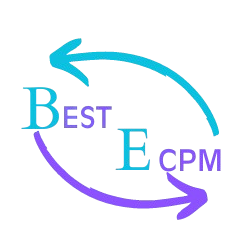Content marketing has become an indispensable strategy in the digital age, transforming how businesses engage with their audiences and drive growth. This comprehensive guide will delve into the essence of content marketing, explore its benefits, and provide actionable strategies to leverage this powerful tool effectively.
What is Content Marketing?
Content marketing is a strategic approach to creating and distributing valuable, relevant, and consistent content to attract and retain a clearly defined audience. The primary goal is to drive profitable customer action. Unlike traditional advertising, which often focuses on direct promotion, content marketing aims to educate, entertain, and inform, fostering a deeper connection with potential customers.
The Importance of Content Marketing
Building Trust and Credibility
In today’s digital landscape, consumers are inundated with information and advertisements. Content marketing stands out by offering genuine value rather than overt selling. By providing useful insights and helpful information, brands can build trust and establish themselves as authorities in their industry. This trust can translate into customer loyalty and long-term relationships.
Driving Organic Traffic
One of the key benefits of content marketing is its ability to drive organic traffic. High-quality content that addresses the needs and interests of your target audience can improve your search engine rankings, making it easier for potential customers to find you online. Search engines prioritize content that provides value, so investing in well-crafted articles, blog posts, and other content forms can enhance your visibility and reach.
Enhancing Brand Awareness
Effective content marketing helps increase brand awareness by positioning your brand as a thought leader. When your content resonates with readers, it encourages them to share it with their networks, expanding your reach and attracting new audiences. This organic word-of-mouth promotion can be highly effective in amplifying your brand’s presence.

Key Components of a Successful Content Marketing Strategy
1. Understanding Your Audience
The foundation of any successful content marketing strategy is a deep understanding of your target audience. Research their demographics, interests, pain points, and preferences to create content that speaks directly to their needs. Tools like Google Analytics, social media insights, and customer surveys can provide valuable data to inform your content creation process.
2. Setting Clear Goals
Establish clear, measurable goals for your content marketing efforts. Whether you aim to increase website traffic, generate leads, or boost engagement, having specific objectives will guide your content creation and help you evaluate its effectiveness. Use metrics such as page views, conversion rates, and social media interactions to track your progress.
3. Creating High-Quality Content
Quality is paramount in content marketing. Your content should be well-researched, well-written, and visually appealing. Use engaging headlines, compelling visuals, and a clear, consistent voice to capture and retain your audience’s attention. Prioritize originality and relevance to ensure your content stands out in a crowded digital landscape.
4. Choosing the Right Content Formats
Different content formats serve different purposes and resonate with various audience segments. Common formats include blog posts, infographics, videos, podcasts, and eBooks. Experiment with different formats to determine what works best for your audience and aligns with your content goals. Diversifying your content offerings can keep your audience engaged and interested.
5. Developing a Content Calendar
A content calendar is a valuable tool for planning and organizing your content marketing efforts. It helps you maintain consistency, coordinate with other marketing activities, and ensure timely publication. Outline key dates, topics, and content types in your calendar to streamline your content creation process and avoid last-minute rushes.
Effective Content Distribution Strategies
Creating great content is only part of the equation; distributing it effectively is equally important. Here are some strategies to maximize the reach and impact of your content:
1. Leverage Social Media
Social media platforms are powerful channels for content distribution. Share your content across relevant platforms to reach a broader audience and encourage engagement. Tailor your posts to each platform’s unique features and audience preferences to enhance effectiveness. Engage with your followers by responding to comments and participating in conversations.
2. Utilize Email Marketing
Email marketing remains a highly effective way to distribute content and nurture relationships with your audience. Segment your email list based on interests and preferences to deliver personalized content that resonates with recipients. Include clear calls to action and track engagement metrics to refine your email strategy over time.
3. Collaborate with Influencers
Influencer marketing can amplify your content’s reach by leveraging the influence of individuals with large, engaged followings. Partner with influencers who align with your brand values and target audience to promote your content authentically. Influencers can provide valuable exposure and drive traffic to your website or social media channels.
4. Invest in Paid Advertising
Paid advertising can boost your content’s visibility and reach a wider audience. Platforms like Google Ads, Facebook Ads, and LinkedIn Ads offer various targeting options to ensure your content reaches the right people. Monitor ad performance and adjust your strategy based on data to maximize your return on investment.
Measuring and Analyzing Content Marketing Performance
To gauge the success of your content marketing efforts, it’s essential to measure and analyze key performance indicators (KPIs). Some important metrics to track include:
1. Traffic and Engagement
Monitor website traffic, page views, and time spent on pages to assess how well your content attracts and retains visitors. Analyze engagement metrics such as comments, shares, and likes to gauge audience interaction and interest.
2. Conversion Rates
Evaluate how effectively your content drives desired actions, such as sign-ups, downloads, or purchases. Track conversion rates to determine the impact of your content on your overall marketing goals and identify areas for improvement.
3. Return on Investment (ROI)
Calculate the ROI of your content marketing efforts by comparing the costs of content creation and distribution to the revenue generated. This will help you understand the financial impact of your strategy and make informed decisions about future investments.

Challenges and How to Overcome Them
1. Content Saturation
With the growing volume of content online, standing out can be challenging. To overcome content saturation, focus on creating unique, high-quality content that offers real value to your audience. Conduct thorough research to identify gaps in existing content and position your brand as a valuable resource.
2. Keeping Up with Trends
The digital landscape is constantly evolving, and staying current with trends can be daunting. Regularly monitor industry developments and adapt your content strategy accordingly. Subscribe to relevant blogs, attend webinars, and participate in industry forums to stay informed and ahead of the curve.
3. Ensuring Consistency
Maintaining consistency in content quality and frequency is crucial for building and retaining an audience. Develop a content calendar and adhere to it to ensure regular publication. Implement quality control processes to maintain high standards and prevent inconsistencies.
Conclusion
Content marketing is a powerful strategy for building brand awareness, driving organic traffic, and establishing trust with your audience. By understanding your target audience, setting clear goals, and creating high-quality content, you can leverage content marketing to achieve significant business growth. Effective distribution and careful measurement of performance are key to maximizing the impact of your content marketing efforts.
As you embark on or refine your content marketing journey, remember that success requires a commitment to delivering value and staying adaptable in a dynamic digital landscape. By implementing the strategies outlined in this guide, you can harness the full potential of content marketing to achieve your business objectives and foster lasting connections with your audience.




